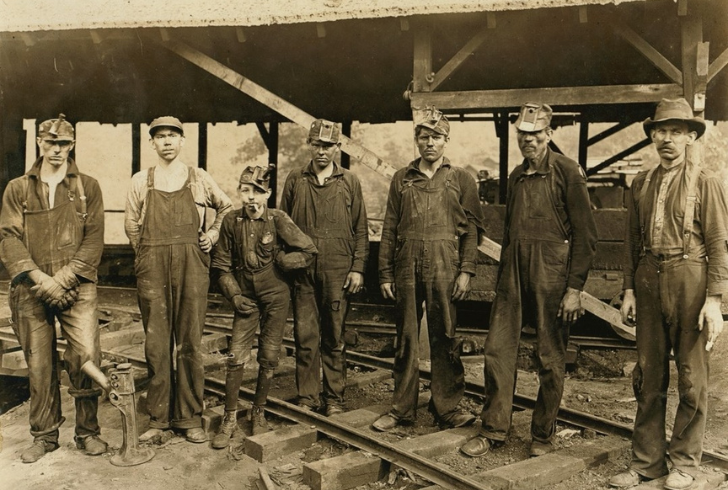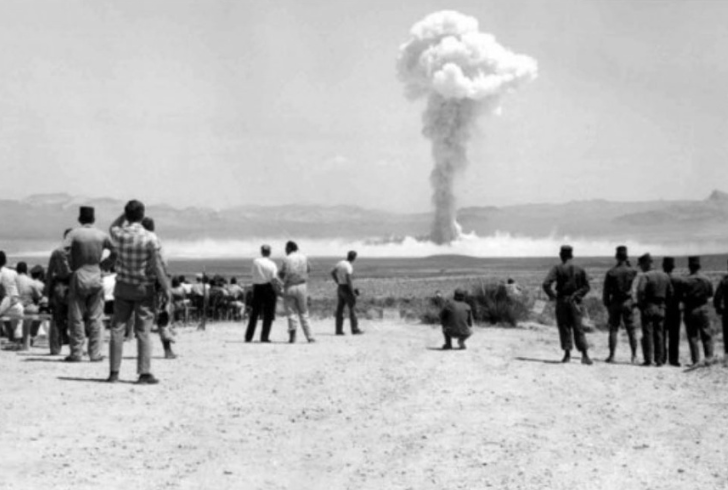As the saying goes, "Those who cannot remember the past are condemned to repeat it." However, what happens when schools never teach you the full story? History often skips over uncomfortable truths, leaving behind a sanitized version of events. In fact, these hidden facts from the past might just shift everything you thought you knew.
Recently, a Reddit user asked, "What's one historical fact that they won’t teach you in school?" Surprisingly, the responses uncovered shocking realities. From unspoken government plots to overlooked battles, these ten stories reveal the forgotten truths that never made it to the classroom.
1. Many Heroes of the Alamo Remain Overlooked
The Battle of the Alamo holds legendary status, thanks to films like "The Alamo" (1960). However, history books often frame the event through a narrow “heroic Anglo” lens. Historian Bryan Burrough highlighted this perspective, explaining that slavery drove much of the conflict. Yet textbooks rarely mention this connection.
Additionally, many accounts ignore the Tejanos—Mexican Texans—who fought alongside white settlers. Their contributions faded into obscurity because the “Anglo narrative” overshadowed their roles. This selective storytelling leaves out critical pieces of the truth.

Instagram | officialalamo | Discover untold stories of the Alamo.
2. The Irish Potato Famine Had Preventable Causes
The Irish Potato Famine wasn’t just a natural disaster; policies from the British government worsened the tragedy. When a fungal blight destroyed potato crops, reports described potatoes rotting into “masses of slime.” Hunger led to widespread illnesses like cholera and typhus, killing about one million people and forcing two million to emigrate.
Although Irish leaders petitioned to repeal the restrictive Corn Laws, their efforts came too late. British relief efforts like work programs and soup kitchens arrived only in 1847, but they barely dented the crisis. Historians now recognize how policy failures amplified the suffering.
3. Mississippi Took 130 Years to Ratify the 13th Amendment
The 13th Amendment abolished slavery in the United States on December 6, 1865. Most states quickly ratified it by 1870, but Mississippi dragged its feet. The state finally ratified the amendment on March 16, 1995, but it remained uncertified until February 7, 2013. This delay left a glaring historical stain.
4. The Tuskegee Experiment Withheld Medical Care
In 1932, researchers started the Tuskegee Experiment to study syphilis in Black men. Even after penicillin became the standard cure in 1947, doctors withheld treatment from participants. This unethical practice caused countless deaths and spread infections to spouses and children.
The experiment continued for 40 years before journalists exposed it in 1972, sparking widespread outrage. This dark chapter remains a cautionary tale about medical ethics.
5. The Battle of Blair Mountain

Instagram | americanexperiencepbs | Learn about the miners' brave fight.
The Battle of Blair Mountain in 1921 marked one of America’s largest labor uprisings. Over 10,000 miners clashed with law enforcement and coal company forces at the Logan County border. After federal troops intervened, the five-day battle ended with an unknown death toll, estimated between 16 and 100.
Although miners lost the legal fight, this event stands as a pivotal moment in the fight for workers’ rights. The legal fees bankrupted the United Mine Workers, halting their progress for years. Despite this, the battle’s legacy paved the way for future labor movements.
6. World War II’s Pet Cull in England
When World War II began in 1939, British families euthanized an estimated 750,000 pets within weeks. The government urged families to prioritize rationing for humans, leading many to euthanize pets out of fear and necessity.
Organizations like the Duchess of Hamilton’s sanctuary tried to rescue animals, but their efforts couldn’t stop the widespread culling. Zoos also euthanized venomous animals to prevent escapes during bombings. Humane societies eventually stepped in to curb the losses, but the mass pet deaths remain a haunting wartime memory.
7. The Business Plot
In 1933, wealthy financiers plotted to overthrow President Franklin D. Roosevelt and install Marine Corps Major Smedley Butler as a fascist dictator. They aimed to combat the Great Depression by abandoning democracy in favor of a military regime.
Major Butler exposed the conspiracy by testifying before Congress. Despite clear evidence, no one involved faced treason charges. Historians still debate how close the plot came to succeeding.
8. Project MK-Ultra’s Disturbing Experiments
The CIA launched Project MK-Ultra in the 1950s to study mind control using drugs like LSD. Participants often joined unknowingly, and experiments ranged from psychological manipulation to chemical testing.
Author Ken Kesey, who volunteered for MK-Ultra, later became a counterculture icon. He hosted LSD-fueled "Acid Tests," helping popularize psychedelic culture. However, the experiments caused long-term harm, and public backlash forced the program to shut down after exposure in 1974.
9. The Unacknowledged Victims of Hiroshima and Nagasaki
While many know about the destruction caused by atomic bombs, fewer people recognize the long-term effects on survivors, known as Hibakusha. These survivors faced radiation sickness, cancer, and discrimination for decades after World War II.
The U.S. government also censored images and reports of the bombings to downplay the devastation. This erasure prevented the world from fully understanding the bombs’ human toll.

Instagram | curiositystream | Uncover the truth about hidden tests.
10. The U.S. Government’s Secret Nuclear Testing on Citizens
During the mid-20th century, the U.S. conducted secret nuclear experiments on civilians without their knowledge. For instance, from injecting patients with radioactive materials to releasing radiation over towns, these experiments exposed countless people to harm.
One notable example involved releasing radioactive gas over St. Louis in the 1950s to study its effects. Eventually, these experiments came to light decades later, sparking outrage and calls for accountability.
Hidden History Shapes the Present
History isn’t just about memorizing dates; it’s about understanding the stories behind them. These hidden truths reveal how easily power can shape narratives. By uncovering these overlooked facts, we can better understand the complexities of the past—and ensure they don’t repeat themselves in the future.